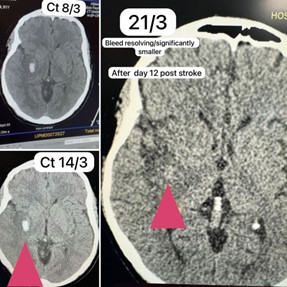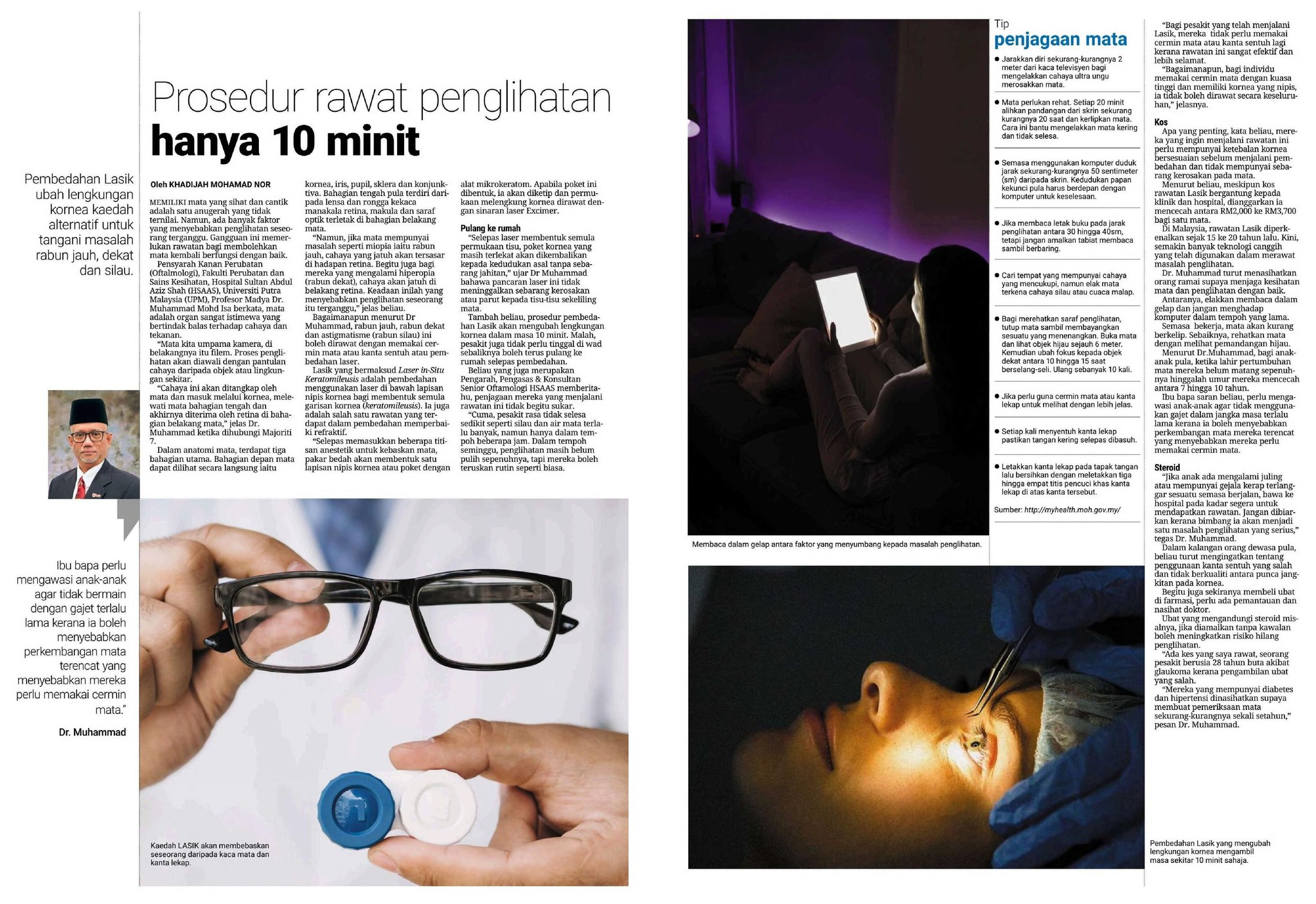**Artikel ini telah diterbitkan di www.nst.com.my pada 23 Ogos 2023**

Ringkasan Artikel
Dr Lau says depending on the initial colonoscopy findings, and the patient’s overall health, he or she may require only another colonoscopy in 10 years if there are no adenomas and no significant risk factors for colon cancer.
Oleh: Meera Murugesan
A COLONOSCOPY is a relatively safe procedure and when performed well, can potentially prevent colorectal cancer. Colorectal cancer is the most common cancer among men in Malaysia and the second most common among women.
A colonoscopy is a medical procedure where a thin, flexible tube with a camera attached to it is use to examine the inner lining of the colon. The purpose is to detect abnormalities, such as polyps, inflammation, or cancer.
Collection of samples (biopsies) and removal of polyps can be performed during a colonoscopy.
Hospital Sultan Abdul Aziz Shah consultant gastroenterologist and hepatologist, and medical lecturer at the faculty of medicine and health sciences University Putra Malaysia Dr. Lau Su Yin, says age and family history play a part in the risk of developing colon polyps and cancer.
If one has no symptoms, (such as changes in bowel habit, weight loss, bleeding or abdominal discomfort) a good age to start screening for bowel cancer is 50.
“If you have a family history of bowel cancer, your doctor may recommend a colonoscopy at the age of 40 or even earlier,” she says.
The reason for regular colonoscopies is to find and remove polyps (specifically adenomas) which could grow in 5 to 10 years, becoming cancerous.
Dr Lau says depending on the initial colonoscopy findings, and the patient’s overall health, he or she may require only another colonoscopy in 10 years if there are no adenomas and no significant risk factors for colon cancer.
If polyps are found, depending on their size, type and number, a repeat colonoscopy (surveillance) would be done earlier, ranging from six months to three years.
“A good quality colonoscopy depends not only on the person who performs the procedure (the endoscopist) but the patient as well. A comprehensive examination begins with proper preparation, consisting a bland diet and litres of purging medications so the colon is empty and clean.”
The endoscopist then inserts the colonoscope from the anus to the caecum (first part of colon) or the terminal ileum (last part of the small bowel) and only after that, meticulous assessment for polyps and other abnormalities start.
A clear and comprehensive report is an essential part of a colonoscopy so you should expect a full report, preferably with photos attached when you walk out of the endoscopy suite.
“Listen to your body. If you experience any new symptom, don’t hesitate to consult your doctor for expert advice.”
Dr Lau adds that a faecal occult blood (faecal immunochemical) test is also recommended every one to two years after a colonoscopy. These tests look for tiny traces of blood in one’s bowel motion which could be released by polyps or early cancer.
Tarikh Input: 28/08/2023 | Kemaskini: 09/10/2023 | khairun
PERKONGSIAN MEDIA












.jpg)















